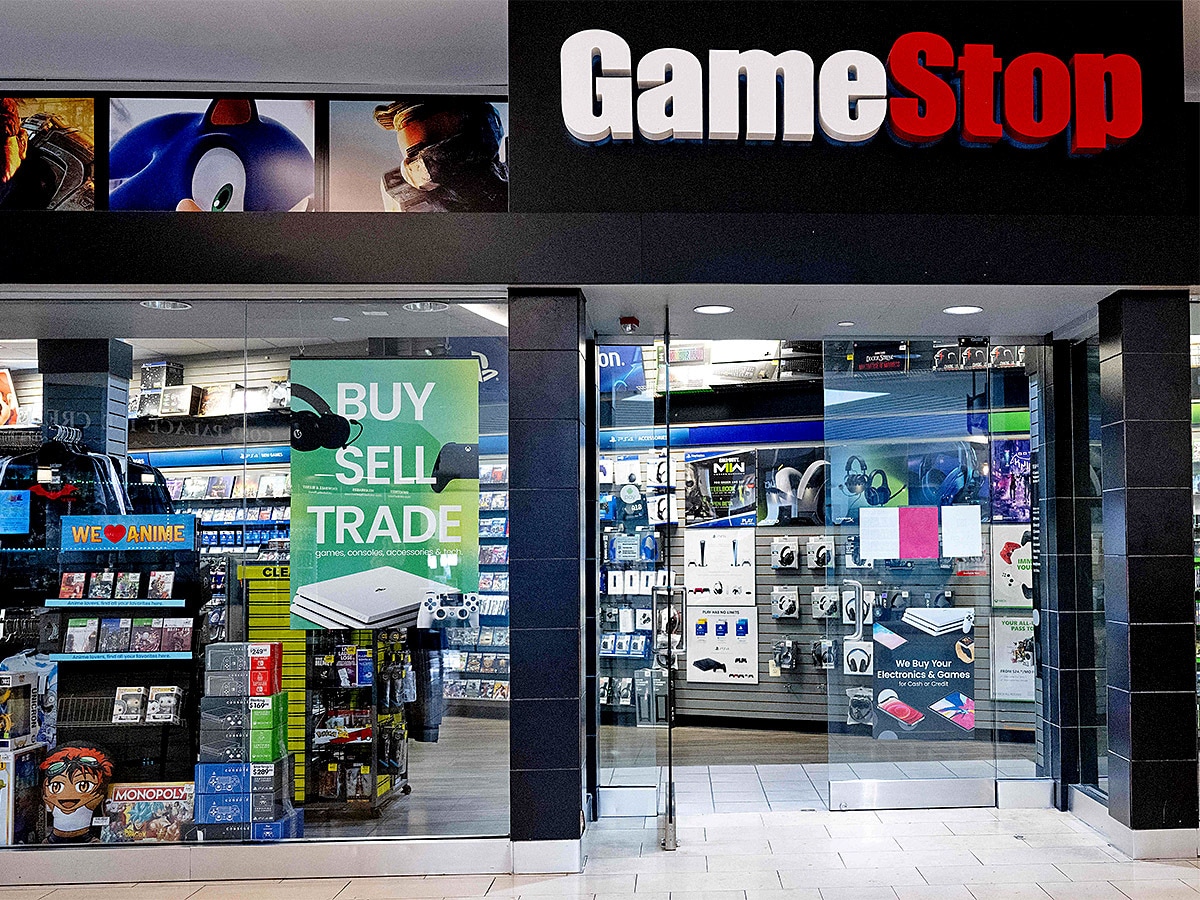GameStop might be the subject of two new documentaries, but the stock has plummeted in 2022, as have fellow meme stocks Bed, Bath & Beyond and Blackberry. Analysts are sceptical about long-term prospects.
Original meme stock GameStop [GME] is back in the news, thanks to the release of two high-profile documentaries and a rather unglamorous software glitch. Despite the press, its share price has still been suffering dramatically, however, with the meme stock down 31.9% year-to-date and 13.6% over the last month.
The US gaming retailer is the subject of Netflix series Eat the Rich: the GameStop Saga, which explores its jump from stock-market washout to hot property in 2021. MSNBC’s feature film, Diamond Hands: The Legend of WallStreetBets, tackles similar ground.
Both tell the story of how amateur Reddit traders used the Robinhood [HOOD] app to buy the bottom of GameStop shares, triggering a short-squeeze that wrongfooted hedge funds betting on its failure. These included Melvin Capital, which eventually collapsed. The David vs Goliath saga cost Wall Street short sellers $20bn, according to The Sunday Times. By 28 January 2021, GameStop leapt to a high of $120.75 per share, up 2,200% from a month earlier, while Robinhood was forced to ditch its GameStop button.
And just last week, an embarrassing software glitch left customers unable to access pre-ordered games, and analysts unable to reason why the stock remains “overvalued fundamentally”, in the words of Steve Sosnick, chief strategist at Interactive Brokers.
Falling profits for games retailer
The meme stock has been all over the place this year, starting at $37.10, climbing as high as $49.85 and sinking as low as $19.40 in March alone. Year-to-date, it’s down a painful 31.9%, closing at $25.27 on 11 October. Since the Netflix series debuted on 28 September, it’s tumbled 7.5%.
GameStop has struggled in 2022, seeing profits fall and losses rise. In September, it posted its second-quarter earnings, reporting a loss per share of $0.35. This narrowly beat the Zacks Consensus Estimate of a $0.38 loss, but was down year-over-year from a loss of $0.19 per share.
GameStop announced net sales of $1.14bn for Q2, below Zacks’ estimate of $1.25bn, while gross profits tumbled by 12% year-on-year down to $282.2m from $320.9m. A $106.2m adjusted operating loss grew 106% over the $51.4m loss reported the previous year.
GameStop is working to diversify its business in a bid to revive its fortunes. At the Q2 report, it gave news of its partnership with FTX US [FTT-USD], a major cryptocurrency exchange. Other recent moves include a marketplace for trading NFTs. It remains to be seen if these measures will resuscitate the stock.
How are other meme stocks faring?
GameStop was the first in a series of meme stocks causing market disruption, and it isn’t the only to suffer after initial gains. Troubled homeware retailer Bed, Bath & Beyond [BBBY] was the name on traders’ lips in August when users on now infamous sub-Reddit WallStreetBets began discussing it. The stock climbed to $30 on 17 August, double its price from two days prior. However, its price has since taken an 83.2% nosedive, down to a humble $5.05 as of its close on 11 October, which is 65.8% down year-to-date.
BlackBerry [BB], which is pivoting towards cybersecurity and the internet of things (IoT), is another meme stock hyped by online traders in 2021. It has also seen large falls, though. The Canadian firm released its second quarter results on 27 September, revealing that revenue fell 4% year-over-year to $168m. The lacklustre results failed to halt the stock’s inexorable slide, down 55.3% year-to-date.
Meme stocks’ future and analyst outlook
Given GameStop, Blackberry and Bed, Bath & Beyond’s patchy performances, betting on meme stocks may seem risky: a temporary flurry of activity is no guarantee of future growth.
Steve Sosnick, chief strategist at Interactive Brokers, said on Yahoo Finance Live on 9 September that “if the value isn’t there I don’t care how much the hype is”. He called interest in firms like GameStop “cultish”, although he did concede that money had been made by some individuals.
Meanwhile, on 8 September, Wedbush analyst Michael Pachter wrote in a note that GameStop remained “a mess” at a business level, pointing out it had lost money for six consecutive quarters and more than $700m since January 2019.
Of the two analysts offering ratings on GameStop to CNN Money, one is calling a ‘sell’ and one a ‘hold’, with a median 12-month target forecast of $16 a 37.6% plunge from its last close.
Continue reading for FREE
- Includes free newsletter updates, unsubscribe anytime. Privacy policy





